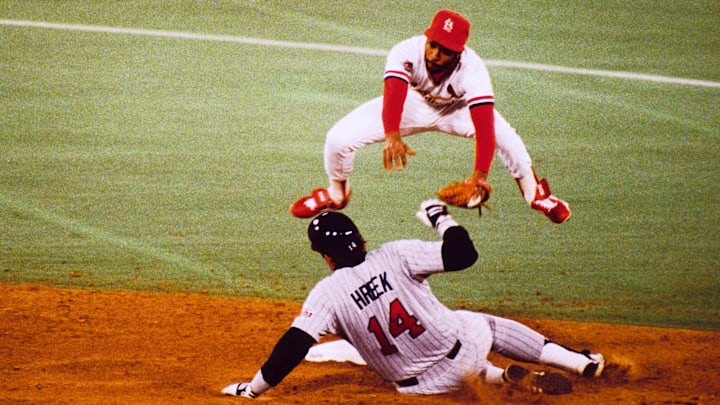3. Edgar Renteria
Edgar Renteria was a well-rounded player, contributing in all aspects of the game during a six-season run with the Redbirds. He was solid but unspectacular in his first three years in St. Louis (1999-2001), though his second campaign in the Gateway City earned him All-Star and Silver Slugger recognition.
It was during the 2002-'03 stretch that Renteria peaked, his age-25 and -26 seasons. He batted .318/.380/.461 during that run, with 24 home runs, 183 RBI, 173 runs scored, and 56 stolen bases at an 80% success rate. Renteria won Silver Slugger awards both years, as well as Gold Gloves which demonstrated his skills on both sides of the ball. He captured his only MVP votes those two years and was an All-Star the second of those seasons.
Another All-Star selection followed in 2004 as the Cardinals reached the World Series for the first time since 1987, though they were swept by the Boston Red Sox, the team that overcame an 0-3 American League Championship Series deficit to the New York Yankees as part of an 8-0 run to the title. A free agent that winter, Renteria moved from the runner-up Cardinals to the champion Red Sox, thus wrapping up his time in St. Louis.
During his time as a Redbird, Renteria posted a .290 batting average with 71 homers, 451 RBI, 497 runs scored, and 148 stolen bases, a diverse combination of performance that results in him being designated as the franchise's third-best shortstop in over 120 seasons.
